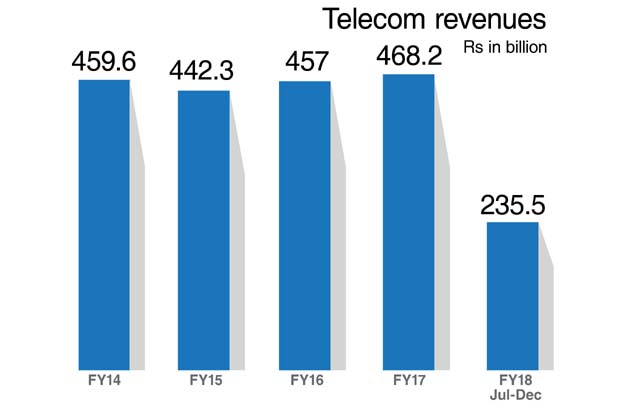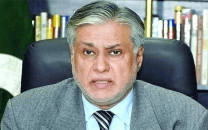Pakistan requires another Rs18 billion to provide IT services in un-served areas
Will frame cyber governance policy in new fiscal year to tackle data theft

Will frame cyber governance policy in new fiscal year to tackle data theft PHOTO: FILE
“It is estimated that around 7,700 kilometres of routes are un-served and at least Rs18 billion will be required to provide this (IT infrastructure and services) coverage,” read the Pakistan Economic Survey 2017-18.
This was needed even though the government spent more than Rs27 billion worth of subsidy over the past five years to connect the unconnected in un-served and underserved areas of the country, it said.
In the current financial year, 191 mauzas (villages) have been provided with telephone and mobile internet services, including the seven projects launched under the Broadband for Sustainable Development Programme.
Pakistan's IT sector advancing rapidly as exports jump to $5b
According to the survey, the telecom sector recorded a positive growth in the first two quarters (Jul-Dec) of FY18. Total teledensity reached 72.7% at the end of the second quarter compared to 72.5% at the end of previous fiscal year in June 2017. In February 2018, the reading reached 74.2%. Revenues of the telecom sector reached Rs235.5 billion in the first two quarters of FY18. New faster technologies 3G/4G and Long Term Evolution (LTE) opened new revenue generation streams for mobile operators since people in the country were quickly adapting to these new technologies and services.
Telecom operators invested $322.9 million in the first two quarters of FY18 and the main driver behind that was the cellular mobile sector that invested $267.94 million, according to the survey. In the first two quarters, the sector contributed approximately Rs79 billion to the national exchequer in terms of taxes, regulatory fee, initial and annual licence fee, activation tax and other charges.

Cellular subscribers in the country reached 144.53 million by the end of December 2017 with net addition of 4.77 million from July to December 2017. By February 2018, the number rose to 147.5 million. Increasing coverage and reduced tariffs helped step up the pace of 3G, 4G and LTE subscriptions which stood at 51.2 million by the end of February 2018 while total broadband subscribers reached 53.5 million.
Local loop subscribers kept on declining. The subscribers of Fixed Local Loop (FLL) and Wireless Local Loop (WLL) were recorded at 2.76 million at the end of December 2017, down from 2.99 million at the end of previous fiscal year in June 2017. The number was more than double at 5.23 million in June 2014.
According to the survey, the government undertook extensive consultation with stakeholders for the auction of unsold 2x10 MHz of frequency spectrum in the 1,800 MHz band.
The base price for the spectrum was set at $295 million which industry experts described as too high because of which the government could not sell the spectrum.
“It is planned that the first rolling spectrum plan for Pakistan will be issued during FY 2018-19,” said the economic survey.
Owing to increasing e-commerce, e-banking, e-health, e-education and other business-related IT applications, the information technology sector was exhibiting accelerated progress with approximate total turnover of $4 billion including both exports and domestic revenues, it said.
Pakistan's IT industry set to double by 2020: Ignite CEO
With lead role of the Ministry of Information Technology and Telecommunication, the government has constituted a cyber governance policy committee that will design the cyber governance policy in the upcoming fiscal year for approval from the federal cabinet.
Pakistan does not have any law to deal with online data theft like the one recently unearthed in the case of Careem ride-hailing app. A year ago, the IT ministry had prepared a draft of the Data Protection Act, but could not get it passed from parliament.
Separately, the government is establishing an IT park, spread over an area of 47.7 acres of land, in Islamabad with financing from Korea Exim Bank through the Economic Development Cooperation Fund. It aims to establish the park in two phases by 2020 and cost estimate for the first phase is $88.25 million.
Published in The Express Tribune, April 27th, 2018.
Like Business on Facebook, follow @TribuneBiz on Twitter to stay informed and join in the conversation.



















COMMENTS
Comments are moderated and generally will be posted if they are on-topic and not abusive.
For more information, please see our Comments FAQ